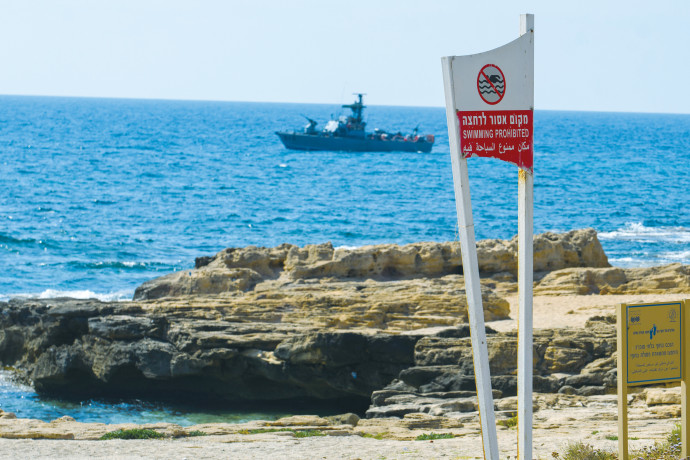An accomplishment or a surrender? An economic deal or a pact about security? What is the right way to view the maritime border deal reached Tuesday between Israel and Lebanon?
Here is one suggestion – as neither economic nor security, since what this deal really brings together is an accumulation of diplomatic, security and economic interests. It is not just one; but all.
Which is why comparisons to past concessions - like suitcases of cash that the Netanyahu-led government allowed to be transferred to Hamas in Gaza – are not exactly accurate.
Those moneybags were given to a terrorist organization to buy one thing and one thing only – quiet. There was no royalty that Israel was to receive and the money was given knowing that it would help fund Hamas armament and the financing of terrorist activities in Gaza.
The Lebanese deal is different for a few reasons: First, there is a royalty that Israel will receive that could amount to billions of dollars, assuming that there is even gas under the waters that are being declared as part of Lebanon’s Exclusive Economic Zone (EEZ). The president of TotalEnergies, which has the license from Lebanon to explore the zone, arrived in Beirut on Tuesday, a sign that now with a deal in place, work can begin.

Starkly different than Hamas cash payments
The second reason this is starkly different than Hamas cash payments, is because of who is receiving the EEZ. It is not Hezbollah. On the contrary - Hezbollah has been able to take credit for Iran’s supply of fuel that helps provide a few hours a day of electricity in Lebanon. Once there is an operational gas rig, Iran will no longer be needed.
This breaks the dependence on Iran and removes one of the reasons the Lebanese look to Hezbollah as its provider.
In addition, this deal – assuming gas is even found – will see the establishment of a gas rig within the Lebanese EEZ not too far from the Karish gas rig that will soon begin pumping gas to the shore. This creates a deterrence and an asset that Lebanon can potentially lose if Israel is attacked.
And finally, this deal has the potential to boost Lebanon’s economy, a clear Israeli interest. Israel is doing the right thing trying to avoid war with a minimum cost. Giving up on economic rights that may or may not be worth something is a price worth paying to prevent war and create regional stability.
While this is far from being a peace deal with Lebanon, the uproar by some on the Right over a surrender of territory is disingenuous. EEZ is not territory. It is the right to exploit natural resources. Giving up that right is economic, especially when taking into consideration the fact that under the deal, Israel is supposed to receive royalties from Total.
This is the position of top Israeli legal experts, including people like Col. (ret.) Pnina Sharvit Baruch, the former head of the international law department in the Military Advocate General’s Office. Sharvit Baruch’s job was to approve targeted attacks in places like Gaza and potentially Lebanon. Her opinion matters.
Nevertheless, there are some so-called maritime experts who claim that Israel is surrendering territory. That would be the case if Israel has given up water within 12 nautical miles of its territory – not yet known – as the former commander of the navy Eliezer Marom explained on Tuesday.
But economic waters? Who cares, he asked
Marom knows the water and knows their importance. He is one of Israel’s most brilliant, creative and decorated naval officers. What is also interesting is that he is a supporter of Likud and reportedly considered running in the recent party primaries. He told reporters on Tuesday that he supports the deal assuming there is no forfeiture of Israeli territorial waters and just part of the EEZ.
Marom was the officer who in 2000 oversaw the navy’s deployment after the withdrawal from Lebanon. He placed the markers that make up what is known as the “buoy line” between Israel and Lebanon. He is also someone worth listening to.
So, what is the real problem with the deal? Its timing. Israel is going to its fifth election in three and a half years in less than three weeks. That is the entire story.
